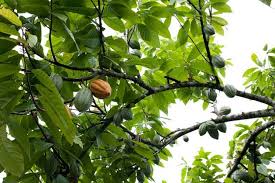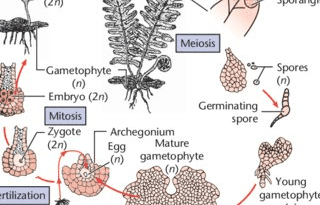Brief History and Roles of Animal Production
Some category of animals that falls into animal production include but not limited to the following: poultry production, pig production or swine production, dairy animals and many more.
Also to achieve good return from your animals, proper feeding methods of animal feed should also be applied using the types of animal feeds like poultry feed, goat feed, pig food or pig feed, broiler feed, cattle feed etc. and you can also produce your farm animal feed by yourself to save cost and retain higher profit margin on your farm investment.
Meanwhile proper management practices like livestock management e.g. poultry management, piggery management, fish farm management and many more must be strictly adhered to.
Brief History of Animal Production
Animal production perhaps began about 10,000 years ago when man started domesticating animal from the wild for his immediate and continual needs. Man’s effort in this regard deviated from killing and destruction of animal especially for their products.
In man’s renewed attitude, captured animal were tendered through proper feeding, breeding and application of other management practices, which have led to favorable adaptation and multiplication within the confine of human environment.
As man further realized the potentials of farm animal as sources of food, fibre, and income, greater attention and effort began to evolve to improve production and productivity.
Outstanding performance of measurable and quality characteristics started to manifest for identification and consideration for possible multiplication through selection, breeding and upgrading. Since then new advance began unfold especially in the western countries.
The advance brought alongside; provision of proper housing, feeding selection and breeding methods resulting in the automation of various aspect of animal production and processing at the present time.
Read Also: Aspects of Agriculture
The improvement in livestock production in the western nations far outstrip the level of development in the sub-Saharan Africa, where over 90% of ruminant animal are still in the hand of peasant who use traditional production method.
Application of modern production methods are largely restricted to institutional farm and a few commercial farm.
Roles of Animal Production
The importance of animal production to the economy derives largely from its provision of animal provision and foreign exchange earnings, and extend to several socio-cultural role among different societies.
The recognized role of animal production in the nutrition particularly as source of animal protein stems from the common knowledge that 35 per cent of the nation’s meat supply comes alone from sheep and goat not mention supplies from cattle, swine and poultry.
Failures to meet demand for the animal protein have resulted in continual importation of animal products with or without official permission. Optimum animal protein intake
The food and agriculture Organization [FAO,1985] of the United Nations recommended a minimum of about 56g of protein intake (or 28g) of this should come from such animal protein sources as meat, milk eggs and fish. The British Medical Association recommended a higher minimum intake of 68g per person day.

Most people consume less than 10g of protein per person day out of which only about 3.2g is animal protein compared to the recommended daily intake of 28g. The expected role of animal production is to fill the wide gap of about 25g of daily animal protein intake per person (Dafwang, 2006).
Engagement in farm animal production activities provides gainful employment and means of livelihood to a large cross section of people as herdsmen, butchers, livestock specialists, manufacturers and suppliers of feed, drugs and other production inputs, marketers and traders in the diverse animal products produced regularly and on daily basis.
Read Also: The 10 Best Business Ideas on Agriculture
In certain parts of the world, animal production activities offer an alternative full employment during the dry season when other agriculture production activities are reduced or non-existence.
The alternative means of employment at off season enables the people concerned to earn a living while discouraging tendency to engage in vice habits.
The provision of primary industrial raw materials of animal origin is a major consideration for undertaking production of animals in most countries. Nigeria is known for export of the famous ‘Morocco leather’ obtained from the skin of Red Sokoto breed of goats in addition to the hides and skins from other livestock.
Milk and eggs produced in large quantities in the developed nations from raw materials for large and long chain of assorted industrial firms upon which the economies of the countries depend.
The economy of Holland in largely dependent on dairying activities,so also are nation of Australia and New Zealand whose revenues are derived substantially from live animals,beef and other meat products.
Export of industrial raw materials of animal source naturally translates into huge foreign exchange earnings for the exporting countries. As a result, nations aspiring to earn large foreign revenue make specific plans to develop their livestock industries for optimum productivity.
The potentials of the livestock industry to develop in order to satisfy domestic demands and earn huge foreign exchange within the sub-saharan Africa and West Africa religions are clearly indicated in the impressive contributions of the sub-sector to the economy.
These important roles and benefits from a well organized livestock production system are yet to be tapped to the fullest in many areas.
Related: The Concept of Animal Production on Agriculture
However, one role of animal production that seems to have been exploited perhaps to its maximum is the use of livestock production to meet socio-cultural obligations in marriages and festivals, where animals are used for sacrifices and as symbols of social status in the communities concerned.
These cultural obligations are of tremendous social values to a large section of producers.
There is a great task ahead to re-orientate and modify these values into the primary objectives of animal production which entail provision of animal protein food needed for growth development, gainful employment and improved livelihood.
There is also an urgent need for repositioning the industry to earn foreign exchange for the nation as well as produce raw materials for industrial growth.
Related: Factors that affect African Land Snails Survival
Read Also: Strategies for Improving Cattle Production
Read Also: Complete List of Animals Feed Raw Materials and Their Uses
Read Also: 21 Amazing Importance of Water (H2O) to the Body
Read Also: 10 Amazing Health Benefits of Cucumber Fruit
Read Also: Recommended Equipment‘s and Tools Needed in Snail Farming Business
Read Also: Mechanism of Animal Body Defense against Stress
Read Also: 7 Amazing Health Benefits of Cherries
Read Also: 22 High Fiber Foods we have and their Contents
Read Also: 21 Amazing Nutritional and Health Benefits of Orange Juice









